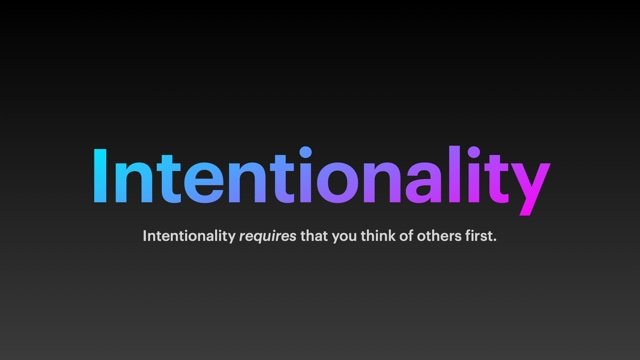The Fastest Year
Yesterday was my one-year anniversary as the Senior Pastor at Asbury Church in Tulsa, Oklahoma; I started my new job at August 1, 2022.
It’s been the fastest year of my life.
My favorite thing about being a pastor—by far—is knowing people over time. I knew when I left Munger I might never be able to have that same experience again—the great privilege of knowing people over time in such a personal way. At Asbury, I was immediately thrust into a situation in which I had to lead people without being able to know them personally. One of the major lessons I’m learning is how to lead a large group of people, many of whom I have no personal connection with. Asbury is a big church—at least compared to most American churches—and we have a large staff. At Munger, our staff was very small and leadership was always personal for me, both with regard to our staff and even in the congregation, since the congregation grew up over time; though I of course didn’t know everyone, I nevertheless had a personal connection with a sizable percentage of folks on any given Sunday. Here at Asbury, even the staff is too big for me to lead through personal connection. Rather, I’m learning that leadership is about providing clarity, and then asking and inspiring other people to get things done. For someone like me who thrives on personal connection, that could be very difficult, so I’m grateful that folks here have been so eager to follow my lead and run in the direction I’m running.
Right off, I was asked to help us over the finish line of disaffiliation, and it happened! That churchwide vote last August made me nervous—what if folks didn’t trust my leadership? When the total came back that afternoon as overwhelmingly in support of disaffiliation and the direction we were going, I was personally grateful—that result caused me to think, “Maybe this will work!”
The attitude of the Asbury congregation toward what I’m asking us to do and to where I’m asking us to go has been one of eager enthusiasm, particularly in our older members. I’ll never forget asking folks to wear running shoes to church as a sign that we were ready to run, and they did! Or the entire Administration Council showing up to an evening meeting in running shoes to show they were ready to run. Or the Ad Council surprising me in my office on Easter Sunday to pray over me. Or the congregation wearing Hawaiian shirts on Pentecost Sunday, just because I asked them to.
I’m proud of the sermons I’ve preached this past year, starting with that first Sunday. (I do remember one sermon from February in which I was walking around the stage hoping to stumble across the point of my sermon; I’m sorry to say I don’t think I ever found it! My apologies to everyone who had to listen to that one.) I never pulled any punches; in fact, I came to Asbury committed to doing my best to say what’s true, even when I’m afraid. And sometimes, being afraid caused me to double-down and be more bold!
One of the other lessons I’ve been learning is the importance of controlling and capturing one’s thought life. My wife has been on me for not being grateful enough, and she’s right—grateful thoughts don’t come naturally to me. (In fact, I preached a whole sermon in December on the connection between gratitude and happiness—I was definitely preaching to myself that week for sure.) So, looking back over the past year, I want say again just how grateful I am. Grateful to all the kindnesses the Asbury congregation has shown me and my family, and grateful to the Lord who blesses even when we don’t deserve it.
So, here I am beginning Year Two. I came back from summer vacation really excited to be coming back and really fired up at the work ahead—I looked forward all week to seeing folks this past Sunday, which is a great feeling. I’m grateful that the Lord’s not done with me yet, and he’s not done with Asbury yet. And I’m reminded again of that scene from The Hustler (from the blog post I wrote about it one year ago):
Fast Eddie (Paul Newman) and Minnesota Fats (Jackie Gleason) have been playing pool for 25 hours straight, and Fast Eddie has been winning—he’s been wiping the floor with the Fat Man, and is over $11,000 up. There’s a break in the action, and Minnesota Fats goes to the washroom and freshens up. He combs his hair, cleans his fingernails, straightens his tie.
Then he comes out, dries off his hands, slides into his suitjacket—it’s a beautiful three piece suit he’s wearing—fixes his boutonniere on his lapel, and has the steward pour a little bit of talcum powder on his hands.
He looks absolutely magnificent, the picture of masculine elegance, calm, cool, controlled.
And then he looks at Eddie and he says,
“Fast Eddie, let’s play some pool.”
The past is the past—all that matters is now. It’s time to focus, and time to win.
Alright Fast Eddie, let’s play some pool.
Let’s GO.















